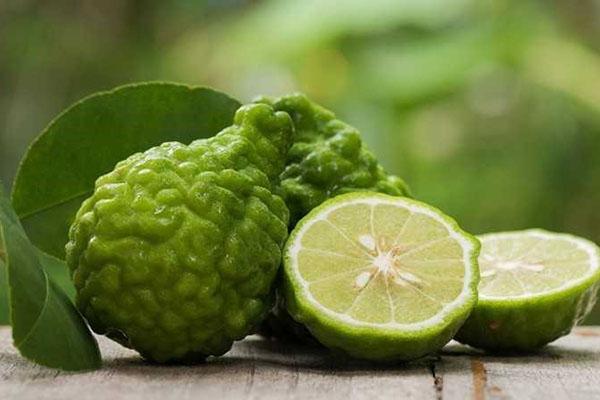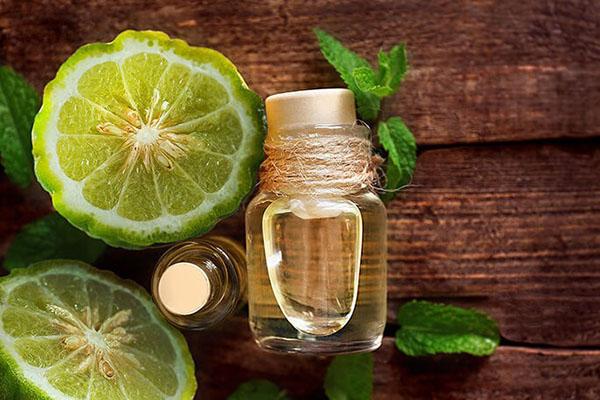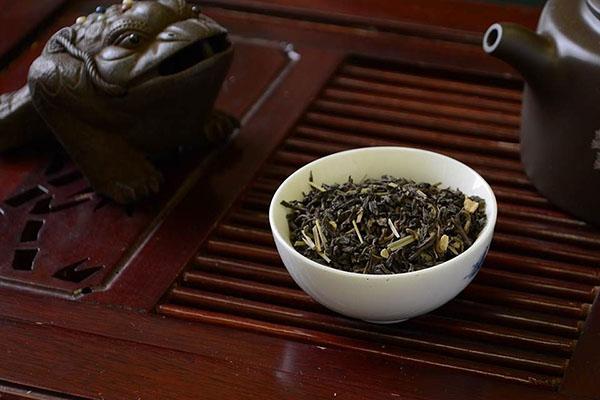Useful properties of bergamot and how to use it

The beneficial properties of bergamot are available to everyone. It is an exotic fruit bred artificially, which belongs to the Citrus family. It is a hybrid of orange and citron. The small town of Bergamo, Italy is considered its birthplace, but the fruits are well tolerated around the world. They are practically not used fresh because of their bitter-sour taste, so bergamot can often be found in the form of oil or a dried tea additive.
Product chemical composition

Bergamot uses include both adding it to food and drinks and making cosmetics based on it.
All the beneficial properties of this fruit are due to its chemical composition, which includes:
- saturated and unsaturated fatty acids;
- a huge amount of vitamins: A, B, C, E, PP;
- various minerals: copper, zinc, iron, magnesium, potassium and others.
Most of the beneficial properties of bergamot are retained during heat treatment and pressing. It is not necessary to eat the fruit fresh, you can prepare tea or cosmetics based on it.
Bergamot in cooking

In the food industry, oil is used, which is obtained by pressing the zest of bergamot fruits. The most famous product with its addition is tea. It also goes well with vegetable and meat dishes, salads and broths. It is enough to season them with a few drops of oil during cooking.
Bergamot oil tea is appreciated not only for its taste. In the human body, it has a number of positive effects:
- destroys viral microflora, due to which it can be used as a prophylaxis for seasonal ARVI and tonsillitis;
- improves the condition of the skin, increases its elasticity, regulates the secretion of sweat and sebaceous glands - the product is especially useful in summer and with increased sweating;
- has a positive effect on the nervous system - bergamot soothes, therefore it is recommended for mood swings, stress and various sleep disorders;
- contributes to the normal functioning of the digestive tract, is useful in inflammatory diseases of the stomach and intestines;
- when breastfeeding affects milk production;
- improves the tone of the vascular walls, promotes lymph drainage, stimulates the circulation of fluid in the body, thereby preventing the appearance of edema;
- has a general strengthening effect, increases the degree of immune defense.
Another beneficial property of bergamot is the acceleration of metabolism. Tea with the addition of bergamot oil is actively advised by nutritionists for weight loss. Citrus extract contributes to the normal functioning of the stomach and intestines, as a result of which all nutrients are quickly absorbed, and not deposited in the form of adipose tissue. In addition, a few drops significantly improve the taste of even the most bland diet meals.
Fresh bergamot is not consumed, but you can cook from its pulp marmalade, jam or candied fruits. A large amount of sugar compensates for the bitter-sour taste, but in such products, the beneficial effect of bergamot is significantly reduced.
Useful properties of bergamot in cosmetology

Bergamot is often used in cosmetology. Its beneficial properties and consistency allow it to be added to any face, body and hair care products.Especially recommended for oily skin types - citrus extracts perfectly reduce the activity of the sebaceous glands. Thanks to its use, unpleasant shine is eliminated, the skin acquires a healthy tone, softens and tones.
The bactericidal and antifungal effects of bergamot oil are equally important. When applied to the skin, it can get rid of acne, inflammation and dermatitis. Shampoos with the addition of this component are useful against seborrheic dermatitis and quickly eliminate dandruff.
Cosmetologists recommend several recipes that can be easily used at home:
- glycerin (15 ml) diluted with water (75 ml) is combined with a few drops of bergamot and rosemary oils - this mixture can be used as a mask for oily skin;
- acne remedy - 50 ml grape seed oil and a few drops of bergamot, treat problem areas daily;
- 3 drops of bergamot oil can be added to tanning products to enhance the effect;
- for oily hair - apply oil to the comb and use it daily;
- bergamot oil, diluted with any vegetable oil, is used to treat herpes.
Concentrated bergamot essential oil should not come into contact with mucous membranes and damaged skin. In this case, wash it off immediately with water.
Bergamot is an irreplaceable component in perfumery. The oil extracted from the peel of the fruit goes well with rosemary, orange and other flavors. This combination, among other things, affects the psychological state of a person, gives strength and energy, while calming the nervous system. To enhance the effect, you can use bergamot in aromatherapy. A few drops of essential oil in the aromalapma quickly spread throughout the room, restoring emotional balance.
Other methods of use

Bergamot is popular in dietary supplements. In pharmacies, you can find tablets and capsules with this component. They have a complex effect on the body, speed up metabolism and improve digestion. Also, these drugs are taken to normalize cholesterol metabolism and to lose weight.
Bergamot essential oil is used for massage. It is added in a small amount to the base - 3-5 drops are enough for maximum effect. The product effectively tones the skin, tightens pores and helps against fine wrinkles. Also, after such a massage, the state of health noticeably improves, the work of the nervous system is normalized, and edema disappears.
Bergamot is also known in folk medicine. If you combine petroleum jelly and glycerin in equal proportions, and then add a few drops of oil, you get a mixture for rubbing feet with bronchitis. The properties of bergamot in tea are used against various infectious diseases, as well as for general strengthening of the immune system.
Contraindications for use

Despite the fact that the product is useful and has a wide range of effects, it is not indicated in all cases. In its pure form, it can cause burns if it comes into contact with the skin and mucous membranes. Also, do not use it often in tanning products - it contains photocoumarins, which can cause skin pigmentation.
Even when used correctly, the product is not useful for everyone. Contraindications for bergamot include:
- children's age - oil is not added to cosmetics for children under 12 years old;
- frequent drops in blood pressure;
- allergies to bergamot and citrus fruits.
Bergamot may also be contraindicated during pregnancy and breastfeeding. It depends on the individual reaction of the body to the product, as well as the presence of allergies in the child.
Bergamot is a unique plant that can be used in cooking, cosmetology and other fields. It has a positive effect on all organ systems, toning and healing tissues.Most often it can be found in tea. Its addition not only improves the taste, but also turns the drink into a therapeutic agent.